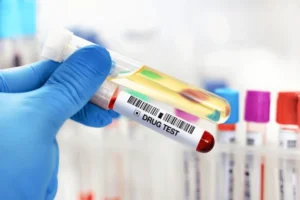The Role of Drug Testing Companies for Employers
Having a successful drug testing policy in place is a top concern for a lot of companies nowadays. These specialized firms offer comprehensive services, alleviating the burden on internal HR teams. They ensure uniformity in the drug testing process, promoting efficiency and consistency Prioritizing safety, compliance, and workforce productivity, businesses find valuable support in these dedicated drug testing organizations. Here is an in-depth look at some of the key functions served by Drug Testing Companies for Employers:

Compliance Management
One of the top reasons is to adhere drug testing companies for employer to federal, state, and industry regulations that apply to their business. For example, the federal government requires testing for workers in transportation, aviation, rail, pipeline, and other safety-sensitive roles. Regarding necessary testing procedures and frequency, the DOT and FAA have comprehensive regulations.
Experts in drug testing make sure that employers abide by all applicable compliance policies and regulations. They will monitor any changes and notify clients ahead of time if testing standards are altered. This keeps important licenses that depend on compliance safe from fines, legal action, or loss.
Policy Administration
Each company sets its workforce substance abuse policies within the applicable regulations. A good testing provider will consult on crafting the policies and procedures around testing. Key considerations are who will be tested, frequency of testing, substances included, disciplinary actions, and more.
Once policies are set, the testing company handles administrative tasks such as randomly selecting who will be tested and when. This removes bias or influence on selections by company managers. The experts will also set up any requirements around new hire screening, post-accident testing, or other timelines.
Specimen Collection
A critical component that drug testing companies for employers manage is the collection of drug test specimens. This includes urine, hair, oral fluid, or breath alcohol samples. Trained personnel will securely obtain the samples, properly seal and label them, and package the specimens to ship to certified toxicology laboratories.
At this critical stage, proper collection techniques protect the integrity of the samples. Testing companies have specialized facilities and staff to handle this sensitive process across all locations an employer operates.
Lab Analysis
The collected samples are shipped to accredited toxicology laboratories that conduct the actual screening and confirmation testing. This is done per forensic standards with extensive quality control measures in place. A wide variety of illegal, prescription, and over-the-counter medicines are checked for in specimens by the labs.
The testing companies choose the top labs in the industry to perform the scientific screening analysis. Lab specialists use modern equipment such as mass spectrometry and liquid or gas chromatography to produce exact results.
Reporting of Results
Once the lab completes the drug testing, the service provider offers convenient access to the results through online portals and real-time notifications. Negative test results are efficiently communicated. But for any confirmed positives, the testing company takes steps to directly inform the employer.
This may include detailed reports on the substances detected, their likely source if legally prescribed, and consultation on the next actions per company policy. The testing partner handles this sensitive communication to protect employee privacy.
Adjudication Expertise
When an employee dispute arises over a positive test result, the testing company’s experts are available to adjudicate. There may be claims that it stemmed from prescribed medications, CBD products, false positives, or other reasons. The technical and medical professionals will investigate, interpret the lab data, and provide their judgment on the claim.
This adjudication can determine if the positive test should stand or be excused per policy. Their knowledge considerably lessens the responsibility of these intricate judgments being made by internal HR employees.
Wellness & Employee Support
A quality testing provider will offer more than just screening, but also resources to support employee wellness and rehabilitation. Employee Assistance Programs (EAPs), which offer counseling and treatment recommendations for persons with substance addiction disorders, are accessible through some companies.
Instead of using harsh punishment in every situation, the intention is to assist workers in regaining their health. Consequently, there is an increased level of acceptance and comprehension regarding drug testing procedures in the workplace.
Compliance Expertise
Workplace drug testing regulations frequently change and vary across states. Testing partners stay fully abreast of emerging federal, state, and local laws that may apply to an employer. They offer guidance on any new regulations and how to update internal policies to maintain compliance.
This allows companies to focus on their core business functions rather than tracking regulatory changes. The experts handle compliance complexity on their client’s behalf.
Program Analytics
Data and metrics on testing program performance provide insights to make improvements over time. Testing companies supply useful analytics on tests conducted, pass and fail rates, common substances detected, collection site productivity, and more.
HR leaders can track trends, find problem areas, and measure program ROI with this information. The data guides decisions on testing policy adjustments, employee communications, deterrence campaigns, and other enhancements.
Outsourcing Critical Functions
As illustrated above, drug testing companies for employers lift a substantial burden from HR teams by managing these myriad complex tasks. While costs are a consideration, the benefits often outweigh the expenses that come with using in-house resources. Well-chosen providers reduce risks and create efficiencies that save money over the long term.
Employers are wise to thoroughly evaluate testing companies on program management expertise, service quality, compliance capabilities, and overall value offered. But those who find the right provider gain a trusted partner in executing workplace substance abuse prevention strategies.



